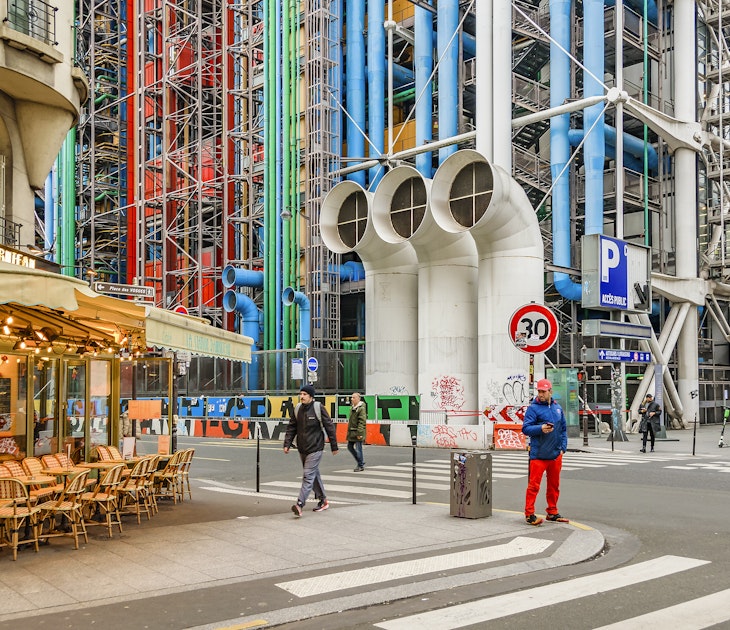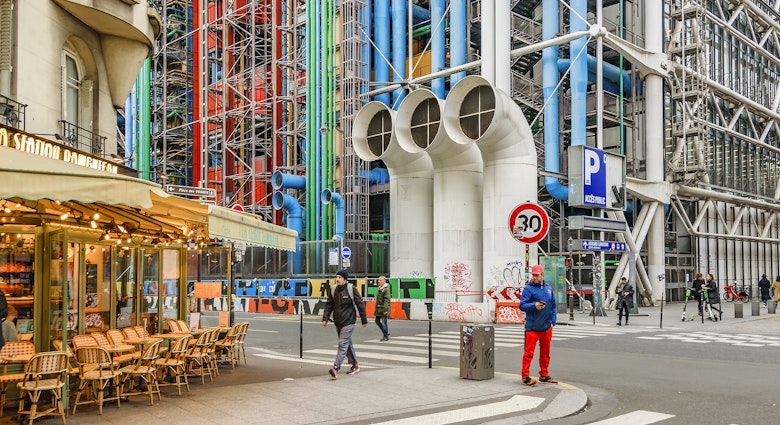Packed with iconic museums and monuments, together with low-key treasures cherished by locals, Paris is a city that emanates "la belle vie" (the good life).
Away from the highlights – the Louvre, Notre Dame and Eiffel Tower – Parisian life ticks along with a coffee on a terrace, a bike ride along the Seine, and wine-fueled lunches with friends in noisy bistros. Blending the blockbuster experiences with these local delights is the key to experiencing the best of Paris.
Here are the top things to do according to a local.
1. See the Eiffel Tower at night
Dodge the habitual daytime crowd zig-zagging up the Eiffel Tower’s southern-pillar staircase or cruising by lift to the top-floor champagne bar, and experience Paris’ signature spire after dark instead. Even better: book at the Michelin-starred Le Jules Vernes and dine in the company of the most beautiful city panorama ensnared within Eiffel’s hypnotic metal web on the 2nd floor.
Detour: For smouldering, eyeball-to-eyeball views of the Dame de Fer (Iron Lady) herself, illuminated at night, enjoy a date night beneath the stars at the summer rooftop bar atop La Shangri-La Paris. Can't be in there? See it from the Seine, with Eiffel Tower views from fine-dining bateau Ducasse sur Seine.
2. Be surprised by the artworks at Bourse de Commerce – Pinault Collection
There’s a secret to exploring the city’s recent art venue addition, which opened in May 2021 in an 18th-century rotunda where the city’s grain market and stock exchange once were. Reserve tickets online, book lunch in the top-floor Halles aux Graines restaurant run by legendary French chefs Michel and Sébastien Bras, and keep your wits about you when admiring the contemporary art in this world-class collection by French billionaire François Pinault.
The exquisite "marble" replica of a late-Renaissance Giambologna sculpture in the central hall (actually a gargantuan, slow-burning wax candle by Swiss artist Urs Fischer), the pesky "pigeons" perched on the balustrade above, the "cushions" strewn on the occasional chair throughout are not what they seem. This mischievous new gallery has been designed to shock and surprise.

3. Sample local life at Paris' food (and flea) markets
Nothing reveals the backstreet grit and grind of local life quite like Paris’ stash of intoxicating markets. Most neighborhoods have one and Bastille’s morning street marché on Blvd Richard Lenoir is a brilliant introduction.
When hunger strikes, swing through the inconspicuous green metal gate on rue de Bretagne, 3e, in nearby Le Marais to uncover Marché des Enfants Rouges. This is the city’s oldest covered market, dating from 1615, with a maze of food stalls cooking up Moroccan couscous, Japanese bento, Thai curries and other world cuisines. Order a stuffed- and sizzled-to-order toasted sandwich or galette (savoury crêpe) from gregarious Alain at Chez Alain Miam Miam, then grab a pew to lunch with locals around communal tables.
To peek into the makings of a Parisian home, ride metro line 13 north to Marché aux Puces de St-Ouen. A village in itself, this gargantuan nine-hectare flea market – Europe’s largest – is where thrifty Parisians gravitate at weekends to hunt down chintzy Louis XVI lamps, rare and wondrous vinyl, avant-garde fittings and furniture, antiques and other second-hand treasures for their city-sleek apartments.
4. Wander through Paris' history at Musée Carnavalet
With its photogenic twinset of hôtels particuliers (private mansions) smacking of 17th-century Parisian aristocracy and labyrinth of lavish rooms spanning time, the Musée Carnavalet in Le Marais is an enchanting rendezvous with history. The architecture alone at Paris’ oldest museum, open since 1880, plunges you straight into the Renaissance.
Thanks to a four-year redesign costing more than €55 million, visiting the Musée Carnavalet is a sharp, immersive, chronological waltz through the glittering story of Paris, from prehistory to the terrorism-troubled 21st century. Some 3800 of 625,000 historical pieces – paintings, sculptures, furniture, signs, posters, models, coins, toys, musical instruments, erotica – adorn rooms perfectly styled to reflect each era. The most spectacular – the lavish painted ceilings, gilt and stucco of the Salons La Rivière (1652–56), Hôtel Wendel’s Art Deco ballroom, Fouquet’s Art Nouveau jewelry shop – are the Real McCoy, uprooted from their original location to the museum for safekeeping.
Planning tip: Admission to the permanent collection is free and doesn't need to be booked in advance. End in the museum cafe, with tables enchantingly scattered in the manicured courtyard garden.
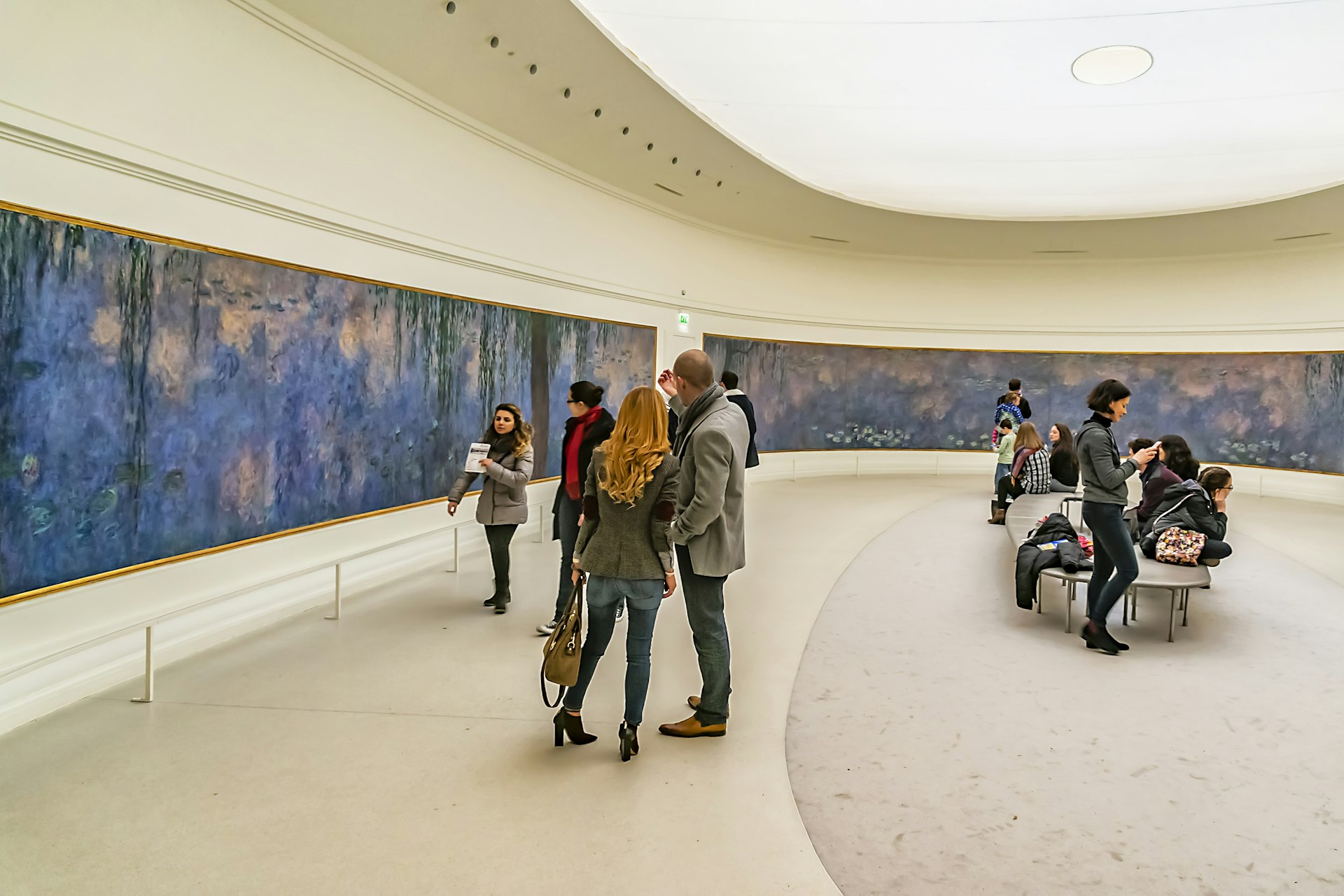
5. Explore Monet's artworks at museums across the city
Which art lover can resist Monet’s signature water lilies? Exhilaratingly gargantuan and immersive, his lilies fill two oval rooms – designed by Monet himself in the 1920s – at the Musée de l’Orangerie in the Jardin des Tuileries.
More Monet masterpieces rub shoulders with paintings by Cézanne, Degas, Renoir and Van Gogh in the Musée d’Orsay, displaying world-class art from 1848 to 1914 in a resplendent 1900-built train station by the Seine. But the real gold lies off the trodden tourist trail, at the unsung Musée Marmottan Monet. Quietly at home in an intimate, Empire-style hôtel particulier in the residential 16e arrondissement, this is where the world’s largest collection of canvases by Monet can be found.
6. Go on a treasure hunt at the Louvre
It would take nine months to simply glance at all 35,000-odd masterpieces at the Musée du Louvre, home to one of the world’s finest collections of Western art. Instead you can join a ThatMuse scavenger hunt to make best sense of the overwhelmingly gargantuan palace-gallery, built as a fortress for Philippe-Auguste in the 12th century and rehashed as a swish royal residence in the mid-16th.
Hunts are themed, a huge hit with families, and lead you into quieter rooms well beyond the over-crowded likes of Da Vinci’s celebrity Mona Lisa or Michelangelo’s Dying Slave. Count between two and three hours to track down, and snap a photo as evidence, up to 30 artworks – the "pieces of treasure".
Local tip: Decamp afterwards to Café Le Nemours, one of Paris’ most mythical cafes with an elegant terrace beneath arches, for a coffee or organic Alain Millat peach juice and classic Parisian jambon et fromage baguette sandwich (or something fancier).
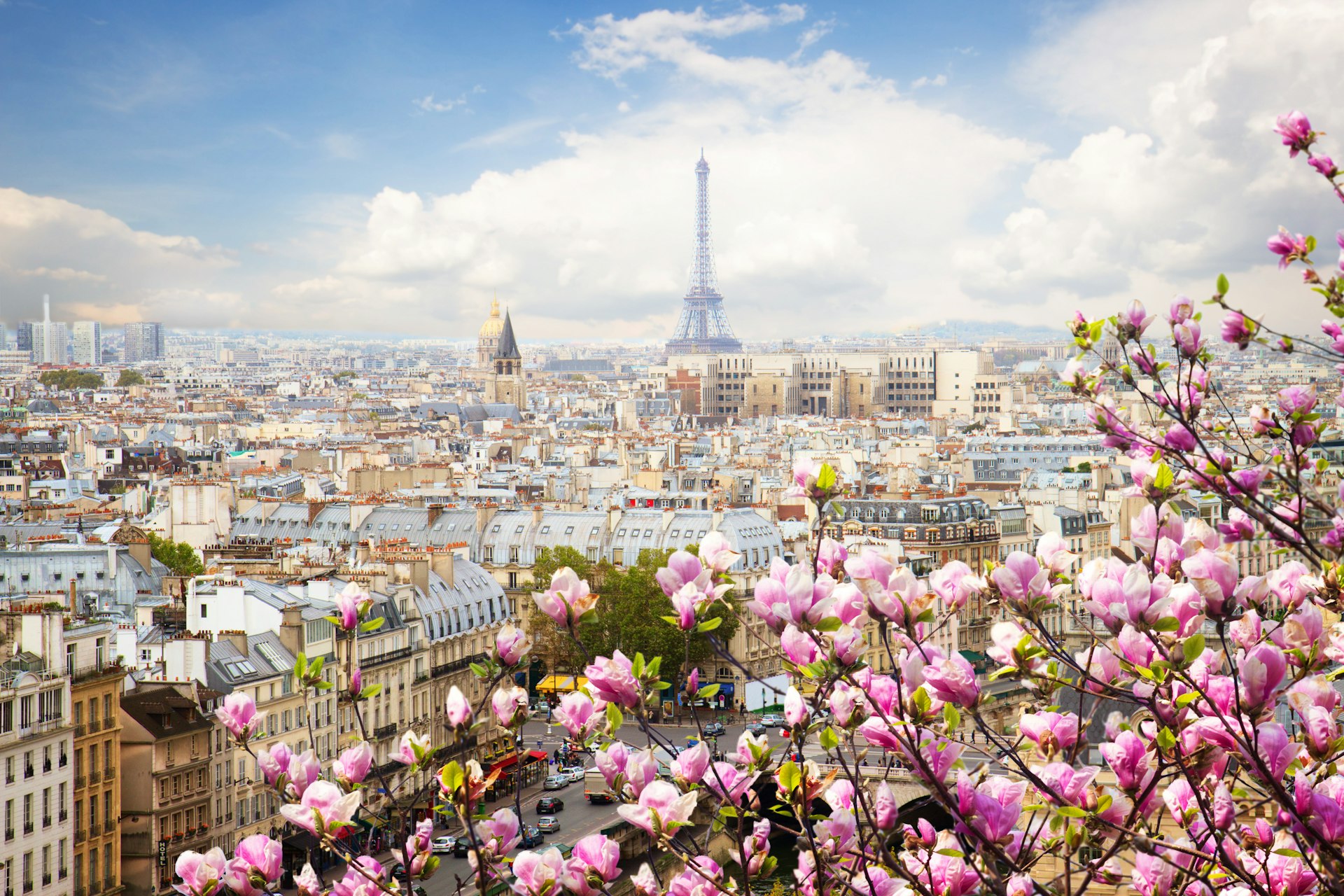
7. Admire Paris' iconic rooftops
Talk of inscribing Paris’ iconic rooftops on Unesco’s World Heritage List has been rumbling for years. Begin your rooftop foray at ground level on place des Vosges, laid out as Place Royale in Le Marais in 1612. It's the city’s oldest square – and the most handsome. This is an ideal spot to admire Paris’ signature roofs from below, originally tiled in slate from the nearby Loire Valley and, from the mid-19th century, with cheaper sheets of shiny seagull-grey zinc.
A 10-minute walk away on trendy Rue Vieille du Temple, 3e, fashionistas hobnob over cocktails, barbecued meats and weekend brunch at Au Top, a hidden rooftop with an insane 360-degree panorama. Le Perchoir Marais is the other unmissable rooftop in the neighborhood.
Local tip: Other Parisian-packed venues to swoon over the city’s romantic skyline: the viewing terrace of department store Galeries Lafayette, Perruche above Le Printemps, cocktail and DJ hub Le Perchoir in the 11e, and farm-to-fork Le Perchoir, at home on Europe’s largest urban farm in the 15e on – guess what – a rooftop.
8. Take a leisurely stroll like a Parisian flâneur
When 19th-century town planner Georges Eugène Haussmann bulldozed the medieval city’s cobweb of dank, narrow alleys in the 1850s to create an elegant, light-filled capital of broad tree-shaded boulevards and squares, he clearly had Parisian flânerie (strolling at leisure) in mind. Left-bank St-Germain des Prés, right-bank Le Marais and Jardin du Luxembourg are classic areas for slow, indulgent walks.
For monumental grandeur around every corner, kick off on the viewing platform of Arc de Triomphe, stroll shop-lined Champs-Elysées to obelisk-pierced Place de la Concorde, and cut through Jardin des Tuileries to arch-pierced Place du Carrousel. Admire the Louvre, with its striking glass pyramid, then duck beneath the arches to Place Colette with its flashy metro-station entrance threaded with 800 Murano glass beads.
Continue into Jardin du Palais Royal to frolic around Daniel Buren’s signature black-and-white striped columns, browse its upmarket boutique-clad arcades, chill over freshly roasted coffee at hidden Café Kitsuné, and flop on a park bench to watch Paris go by in gorgeous slow motion.
Planning tip: Join up with Explore Paris on a wildly creative themed walking tour of Paris such as operatic strolls with a singer in Montmartre, Chinese Belleville, or gourmet walks in Goutte d’Or.
9. Experience village life in Montmartre
Gorging on the spectacular Paris vista that unfolds from the steps of the pearly-white domes of the Sacré-Coeur Basilica – or atop the 300 more steps spiraling up inside the church dome – is a veritable Montmartre moment. But to get under the skin of this fabled quarter of ivy-clad cottages, windmills and artist cafes, it pays to duck down hidden alleys and squares, and explore less-visited streets on the backside of the Butte (as the Montmartre hill is known).
Local tip: Reserve a table at clandestine cocktail bar Le Très Particulier, with walled summer garden, in a 19th-century mansion on Ave Junot. Mooch a couple of doors downhill to Villa Leandré at No 23, one of the picturesque cul-de-sacs in Paris with flowery cottage gardens fronting 1920s, terraced brick houses. Another 15 minutes brings you to La Cité Pilleux (45 rue Ganneron, 18e), an equally bucolic dead-end lane with old industrial workshops re-spun as pretty little dwellings.
10. Tour the historic Cimetière du Père Lachaise
Gawping at ornate tomb art while paying your respects to 70,000 rich, famous and infamous buried in the world’s most-visited cemetery is a riveting urban walk. The historic graveyard, open since 1804, is one of central Paris’ biggest green spaces, with 5300 trees and shrubs, and magnificent 19th-century sculptures by artists such as David d’Angers, Hector Guimard, Visconti and Chapu.
To scout out the iconic graves of 1960s rock star Jim Morrison, Oscar Wilde, Edith Piaf et al, scan the QR code inside the cemetery’s Blvd de Ménilmontant entrance to access a map; or hook up with entertaining cemetery historian Thierry Le Roi. His two-hour guided tours are legendary in their own right.
Local tip: Visit on a sunny day after the rain to experience this unexpected green oasis at its most lush.
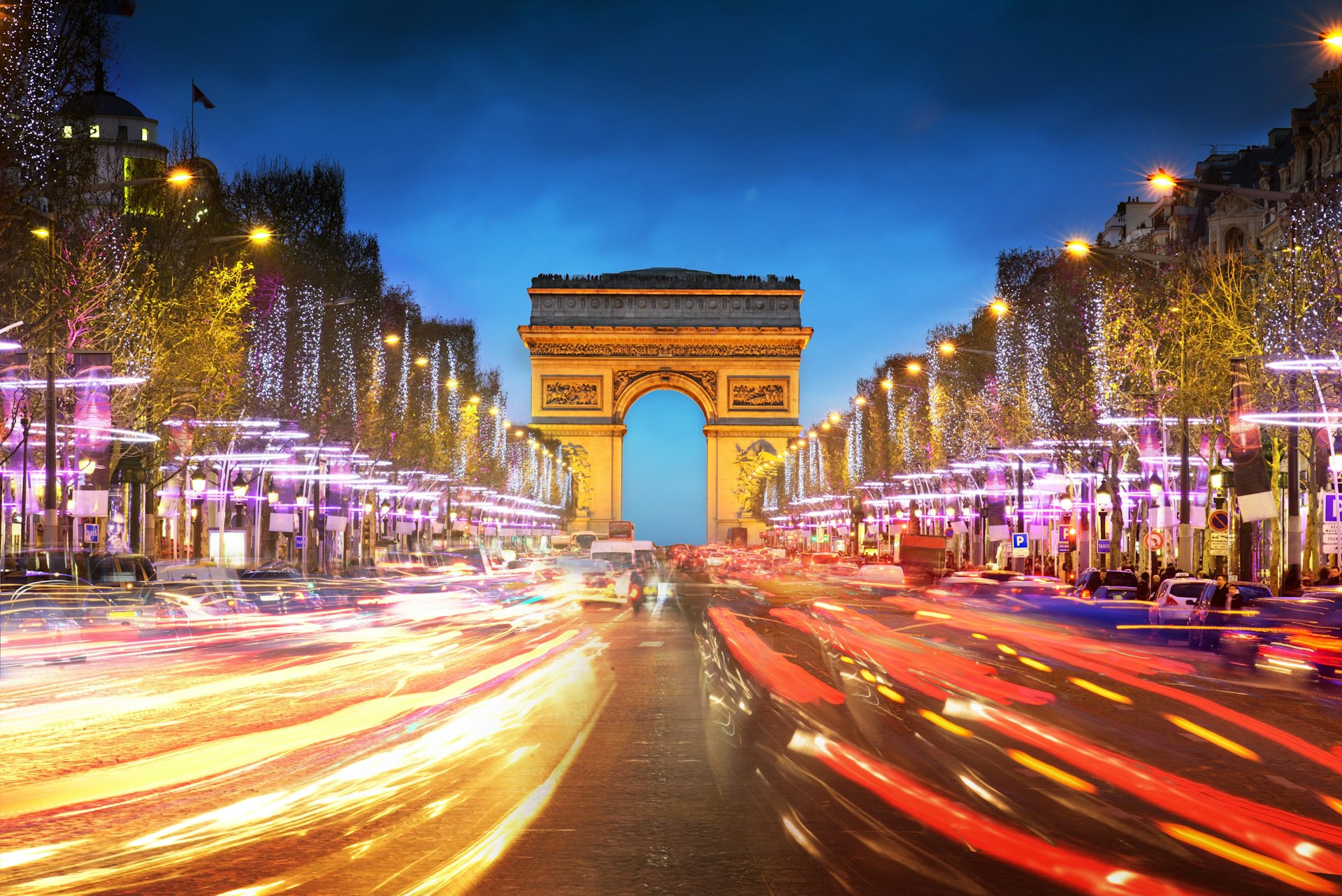
11. Take in the views from Arc de Triomphe's viewing platform
The Arc de Triomphe's sky-high viewing platform is dramatically less crowded than the Eiffel Tower, but with views to rival. The 50m-high (164ft), Roman-style, triumphal arch commemorating Napoléon’s 1805 victory at Austerlitz is also the best spot to get your head around Paris’ Axe Historique (Historical Axis) – a line of historical monuments forming a perfect east-to-west axis through central Paris.
Admire astonishing vistas stretching from the Louvre, Place de la Concorde and the Champs-Elysées (all east), to the Arc de Triomphe’s modern counterpoint, 1980s-built Grande Arche de la Défense (west). Peer down to watch cars twirling around the city’s busiest roundabout encircling the arch and spinning off along one of eight leafy Haussmannian avenues.
12. Cruise the Seine
Paris’ geographical and spiritual heart is the Seine – it all began on its island twinset after all, with early settlers arriving on Île de la Cité around the 3rd century BCE. Cruising the river with Bateaux-Mouches or aboard a hop-on-hop-off Batobus river boat – part of the city’s public transport system – is a memorable experience. Admire scenic Unesco World Heritage-listed riverbanks, islands, summertime beaches and 37 bridges spanning every architectural era.
Sunset drinks are a rite of passage at floating bar and guinguette (dance hall), Rosa Bonheur sur Seine – as is a dose of contemporary street art a short walk west along the quay to bohemian barge-gallery Fluctuart. To stay on the Seine 24/7, check into floating hotel, Off Paris Seine.
Local tip: Hopes are high that parts of the river will be clean enough to swim in by 2025. Until then, cool off on hot summer days at floating outdoor pool Piscine Joséphine Baker.

13. Be intoxicated by Paris' cocktail culture
From glam hotel bars to clandestine speakeasies and upcycled hostess bars in South Pigalle, the craft-cocktail scene in Paris is intoxicating. Paris Cocktail Week, held each year in January, is a brilliant introduction. Otherwise, DIY your initiation with a signature Serendipity at Bar Hemingway in the Ritz – a teeny, chic, wood-paneled space where British-born bartender Colin Field has mixed cocktails for more than 25 years. Legend says Hemingway, wielding a machine gun, helped liberate the hotel bar during WWII – following which he knocked back 51 consecutive dry martinis.
Local tip: Forgotten French liqueurs, zany homemade infusions and inventive syrups are at their finest at Le Mary Céleste, one of Paris’ first bars to pair cocktails with modern French tapas dishes. For summer cocktails, follow a clued-in crowd to Le Pavillon Puebla, a guinguette-styled party space in a rambling 19th-century mansion in beautiful offbeat city park Parc des Buttes-Chaumont.
14. Eat quality local produce at grassroots restaurants
Grassroots produce – seasonal, locally grown, invariably organic and so freshly harvested that earth still clings to the roots – has never been so important in French cuisine. Chefs in Paris are working harder than ever with small regional producers to elevate taste and quality to even greater heights (not to mention supporting local economies).
The untouristed 10th arrondissement is becoming increasingly foodie with wildly successful, bistronomie addresses such as Les Résistants and L’Avant Poste.
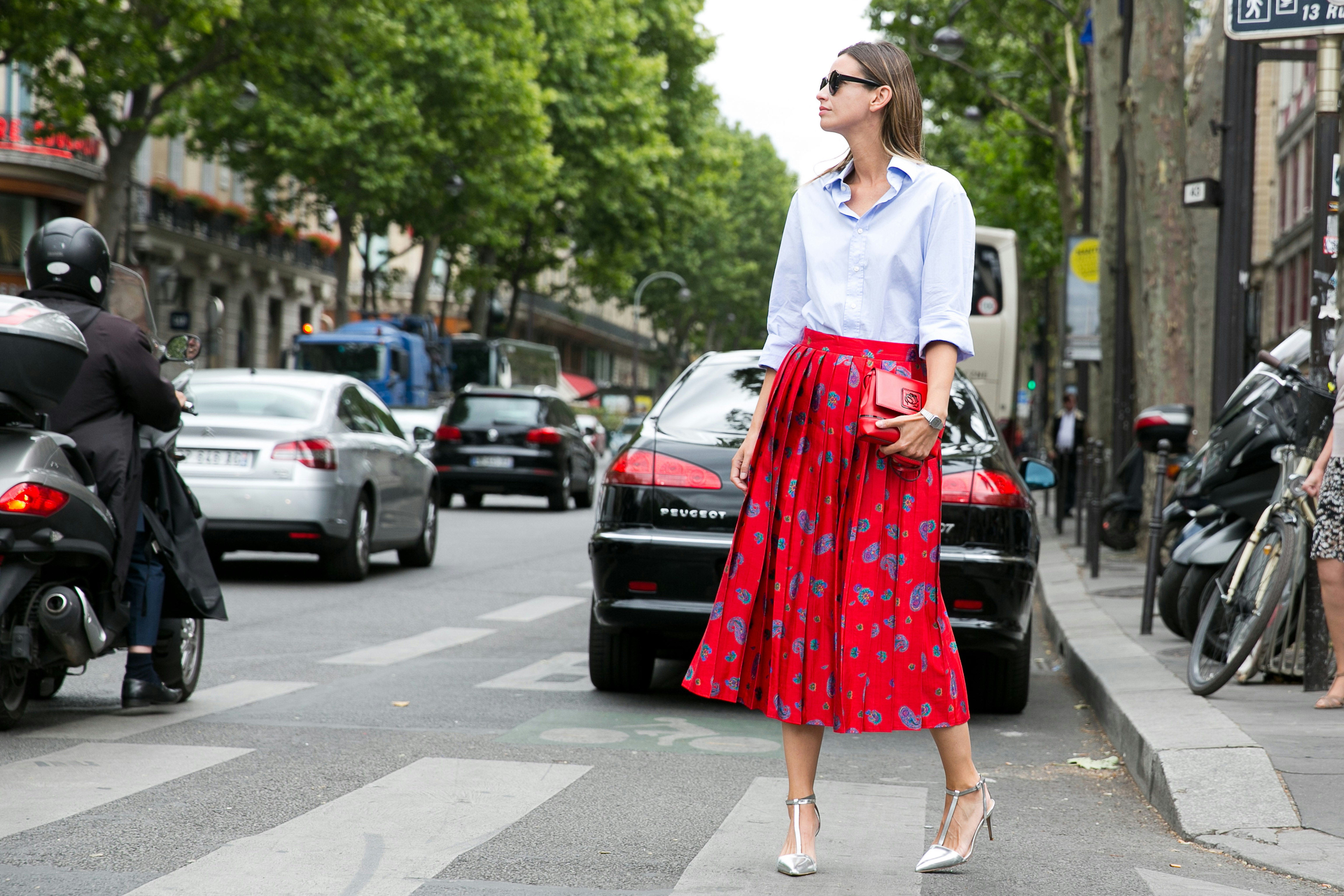
15. Go shopping at designer boutiques
Be it your own made-to-measure Louis Vuitton trunk, a heavenly fragranced candle from the world’s oldest candlemaker, or the season’s latest from eco-conscious fashion store Sézane, shopping in Paris is exuberant and exotic. Pick your quartier depending on personal style and goût (taste): Le Marais for workshop boutiques of independent upcoming designers and mainstream fashion, or around Canal St-Martin in the edgier 10e for concept stores, pop-ups and alternative design boutiques.
Detour: After 15 years of restoration, to the tune of €750 million, historic department store La Samaritaine is breathtaking in size and beauty. Drooling over the Seine-side building’s original art nouveau and art deco features, including the glass-topped central hall – all impeccably restored by Pritzker Prize–winning Japanese firm Sanaa – is completely fine.
16. Watch movies beneath the stars
Paris is one of the most cinematic cities on earth. Film buffs can poke behind the scenes of art deco movie theater Le Grand Rex, lose their soul in a silent B&W movie accompanied by a live pianist music at the Fondation Jérôme Seydoux-Pathé, or follow in the footsteps of screen star Amélie Poulain in Montmartre.
Summer raises the curtain on romance with movies beneath the stars – deckchairs are scattered on the grass in Parc de la Villette during free film screenings mid-July to mid-August. MK2’s ground-breaking cinema hotel, Hôtel Paradiso in the 12e has designer rooms sporting private cinema screens and a lush green rooftop garden hosting screenings after-dark.
Local tip: Films screened on a 24m-long screen in the Louvre’s magnificent 16th-century courtyard during July’s four-day Cinéma Paradiso Louvre open-air film fest are always a rip-roaring success.


